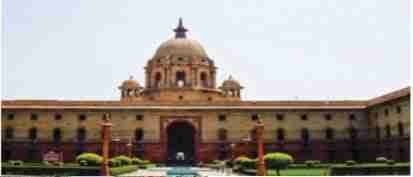Both the Army’s surgical strikes of 2016 and the Air Force’s precision strikes of 2019 on Pakistani terrorist camps/launching pads exposed a section of India’s polity and the band of India-bashing Indians who went to town doubting the effectiveness of anti-terrorist operations launched by India’s Armed Forces. Soon after the 2016 surgical strikes, the discourse began to degenerate to disgraceful levels and atrocious terminology, like fake encounter, “khoon ki dalaali” (brokerage of blood) by the Congress party, with many senior leaders including their President, joining the din with derogatory adjectives/comments. The IAFs brilliant operational actions and achievements too were followed by an even larger re-run of the 2016 diatribes and continued despite proof of the effectiveness of the bombings emerging.
Ironically, the most disgraceful and ridiculous of allegations and comments in 2016 and 2019 came from senior leaders of the Congress party. But that should not occasion much surprise as it was India’s first Prime Minister, Mr Jawaharlal Nehru, who initially believed that India did not need an army! And it was India’s third Defence Minister, Mr V.K. Krishna Menon, who thought that India’s ordnance factories were better off producing pressure cookers! Both of them were responsible for laying a weak foundation for civil-military relations.
Barring two Congress Prime Ministers, Lal Bahadur Shastri and Indira Gandhi, the party’s policies or lack of them on defence and strategic affairs were disastrous for not only India’s external, but also internal security. While Mr. Shastri responded assertively to Pakistan in the 1965 Indo-Pak war, Mrs. Gandhi did so first against China, when it upped the ante in 1967 at Nathula, Sikkim and then against Pakistan in the 1971 Indo-Pak war resulting in the liberation of Bangladesh. However, both failed later at the negotiating tables, with Mr. Shastri giving back Haji Pir and Mrs. Gandhi agreeing to repatriate 93,000 Pakistani prisoners of war and return some Pakistani territory captured in that war without extracting any commitment from Pakistan on letting go off Jammu and Kashmir.
The latest howlers which came from senior Congress leaders were referring to the Pulwama attack as an ‘accident’ and the IAF response as ‘ineffective’ and ‘Not even an ant was killed’. With the Pulwama attack launched a month short of elections, every decision/action of the ruling party is being criticised as an election gimmick by the opposition and other parties forcing Prime Minister Narendra Modi to state that similar actions were taken in 2016, when there were no elections due.
However, the distasteful move of using visuals of military operations/personnel on election posters resulted in a rap by the Election Commission, which directed political parties to desist from displaying photographs of defence personnel in advertisements or otherwise as part of their election propaganda or campaigning. An excerpt of the Election Commission’s directive reads:
“It is pertinent to mention that the armed forces of a nation are the guardians of its frontiers, security and the political system. They are apolitical and neutral stakeholders in a modern democracy. It is therefore necessary that political parties and leaders exercise great caution while making any reference to the armed forces in their political campaigns. The Commission is of the view that photographs of chief of army staff or any other defence personnel and photographs of functions of defence forces should not be associated with or used in any manner in advertisement/propaganda/ campaigning or in any other manner in connection with elections by political parties and candidates.”
The armed forces community is not pleased with all that has been mentioned. While serving personnel are bearing the nonsense silently, the veterans are certainly not doing so. And in many states where veterans form a fairly vast constituency, including war widows and next-of-kin of martyrs, their voting pattern is most likely going to reflect their disgust. While there may be no hope of any improvement in the quality of the opposition’s politics, action must be taken against the epidemic of false news/rumour-mongering in the social media.


